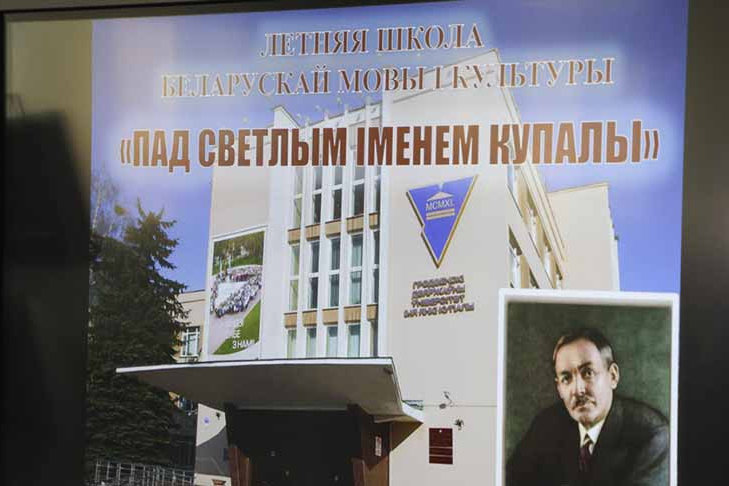Young people from Russia, Kazakhstan and Poland gathered at Belarusian language summer school
The summer school of the Belarusian language and culture has gathered young people from Russia, Kazakhstan, and Poland at Grodno’s Yanka Kupala State University, sb.by reports with reference to the educational establishment’s Telegram channel
The summer school of the Belarusian language and culture is an educational project for those interested in the language, literature, culture, history and traditions of Belarus, and it was organised under the auspices of the university scientific library.
“The school is attended by guests from Russia, Poland, Kazakhstan, students of Lomonosov Moscow State University, winners of the Learn Belarus with Us contest organised by the scientific library of the Yanka Kupala State University as part of the activities of the Centre for Belarusian Language, Literature and Culture operating on the basis of the Philological Faculty of Lomonosov Moscow State University, as well as teachers and undergraduates of the Voronezh State University," the press service of the educational establishment said. “A wide range of issues related to the Belarusian language, literature, folklore, culture, and history are discussed at the school classes. Participants are scheduled to take excursions around Grodno and the region, and various master classes, quests, and interactive games are organised for them.”
The programme includes a visit to the Grodno Museum of the History of Religion, the Old Castle, the Kolozha Church, the Gudevichi Literary and Local History Museum, the Holy Dormition Zhirovichi Monastery, and the defensive-type church in Synkovichi.
A master class on making Belarusian rugs and straw products is planned, and young people will also participate in the Belarus-Style Karaoke contest and cooking of traditional Belarusian dishes.
As noted at the university, it is important that the students of the school not only learn the Belarusian language, but also get acquainted with the culture and history of the republic and see how it lives now. In this way, the educational project is becoming an element of people’s diplomacy.




